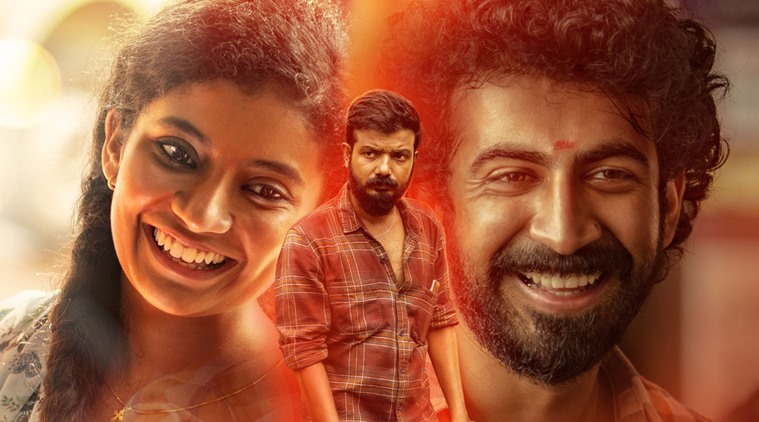 Kappela is streaming on Netflix.
Kappela is streaming on Netflix.
Kappela opens with Jessy (Anna Ben) boarding a public bus. And so begins her decadence.
Kappela reminded me of a non-fiction book I read long ago. Please, Let Me Go is the personal account of Caitlin Spencer, who survived years of sex trafficking in England before she managed to break away from the clutches of her tormentors. She was an ordinary and naive 14-year-old when she fell into a vicious trap of never-ending abuse. Her ordeal started with just a phone call she made without properly thinking it through. And she had to suffer for decades before she could unring that innocent mistake.
Jessy’s troubles also begin with such an innocent mistake. She calls a wrong number, and it almost takes her to the gates of hell. Jessy is a simple girl living in a village in Kozhikode district. Living in a hilltop, Jessy may have developed a curiosity about the lifestyle enjoyed by the folks down in the city. But, she didn’t know that a city was nothing but concrete wilderness, where predators were always on the prowl. And she pays a heavy price to learn that lesson.
Written by Musthafa, Kappela shines light on the paradoxical society in its true form. It is a simple observational piece of cinema, and it never attempts to help the audience to tell the good guy from the bad one. The fear for the girl’s safety makes you want to choose between the devil and the deep blue sea. And the innate innocence that Anna Ben brings to her performance only adds to the tension.
Debutant director Muhammad Musthafa shows the entrenched prejudice of the society in Kappela. No matter who is at the helm of a family, whether it is a matriarch or a patriarch, there is no regard for one’s choice.
Benny (Sudhi Koppa) is desperate to marry Jessy. And takes his mother to Jessy’s parents to propose. Benny’s single-mother frowns looking at the low-income household of her prospective in-laws. And she makes no bones about her disapproval about the poverty of Jessy’s family. She walks out while making it clear that she doesn’t give two hoots about her son’s wishes. Later, her son gathers some courage and takes a stand against his mother’s will. He now goes to Jessy’s parents with an offer they can’t refuse. The deal is made, and wedding preparations are afoot. But, nobody bothers to ask whether Jessy was okay with marrying Benny. Not even Benny.
Imagine, if Jessy was asked to share her wish about the marriage proposal frankly.
Jessy’s father: My precious daughter, would you like to marry Benny?
Jessy: My dearest father, no. In fact, I am actually, well technically, seeing someone. And I would like to marry him.
Jessy’s father: That’s lovely. Invite him over for dinner. I can’t wait to meet him!
Jessy: Thank you, father! You are the best!
Jessy is very happy and hugs her father to show her joy. Jessy and her father have a moment.
The End.
It was not that difficult, right? Only if Jessy was allowed to talk about her desires freely with her family, she would have been happy and safe at home. It is the intolerant view of the other, and uncivilised urge to impose one’s will on the weak is what makes life impossible for many, including our loved ones.
Kappela is streaming on Netflix.